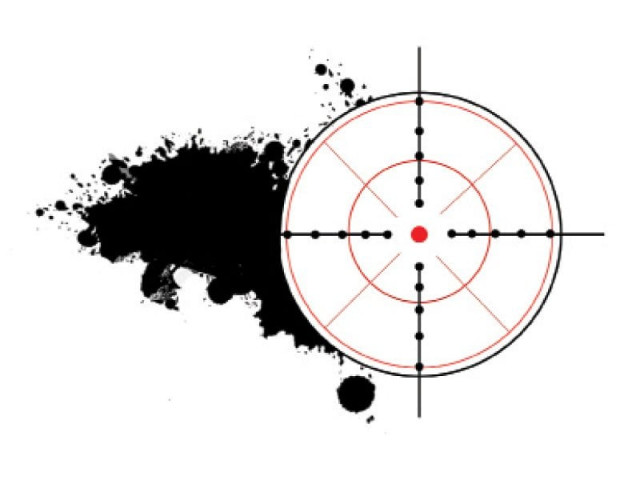Countering terror: How to catch militants and impress people
Experts at a seminar share recommendations for policing and prosecution.

Countering terror - how to catch militants and impress people. PHOTO: FILE
At a seminar, on Tuesday, on the role of the police in the war on terror, experts called for strengthening the force.
An advocacy campaign for a bottom-up demand for better policing and prosecution was also launched at the event, “Countering Terror and Crime- Role of Police and Prosecution.”
Ahmer Bilal Soofi, an expert on international law, said the criminal justice system must be strengthened while stressing on the need to review political support.
Former Sindh IGP Afzal Ali Shigri said Pakistan faced a “complex and difficult security situation due to widespread terrorism and insurgency.” While elaborating the role of the police station as a first respondent and a prime source of intelligence for a national database said there was a need to train officials in public relations and service orientation.

In his recommendations he stressed on the need to build strong linkages between the police station and other organisations to facilitate in transmitting information to the central database in real time. Moreover, a security plan with the police station as a key component was absolutely necessary for the war against terror. “We need to reorient the direction of the police stations and gear them to focus on this battle against a network of terrorists spread far and wide.”
Moreover, central intelligence units at the federal and provincial levels need to create that link to benefit from these very important sources of information, he stated. “This will help in gathering hard intelligence about the terrorists, assessments, trends in terrorism, insurgency and their inter-linkage at the national and international levels.”
While going for huge investments in anti-terrorism forces and units, it is important that the police station is not neglected, Shigri said. “If we recognise the importance of the police station as a key element in anti-terrorism strategy and integrate it in the plan, the battle would be half- won,” he added.
Centre for Research and Strategic Studies (CRSS) Executive Director Imtiaz Gul said cases related to suicide attacks unfortunately lie in cold storage today. Their first information reports were registered against “anonymous” attackers and thus the police couldn’t go any further. In the case of a massive bombing in Khyber Bazaar, the police claimed to have arrested the handler, the carrier but the court released all eight offenders for lack of evidence.
Gul said that the prosecution routinely fails to produce evidence that can be upheld in a court of law, but at the same time, the police are tainted with allegations of corruption and abuse of authority, their job even more complex in cities such as Karachi and Lahore. They also bear the brunt of politicians and are a target for the terrorists.
Robert Perito, author of “Police in War: Fighting insurgency, Terrorism and Violent Crime,” while speaking about the role of the police said, “The police should adopt a proactive role rather than a reactive one.”
The project is a collaboration between CRSS and the German agency for International Cooperation (GIZ).
Published in The Express Tribune, January 29th, 2014.



















COMMENTS
Comments are moderated and generally will be posted if they are on-topic and not abusive.
For more information, please see our Comments FAQ